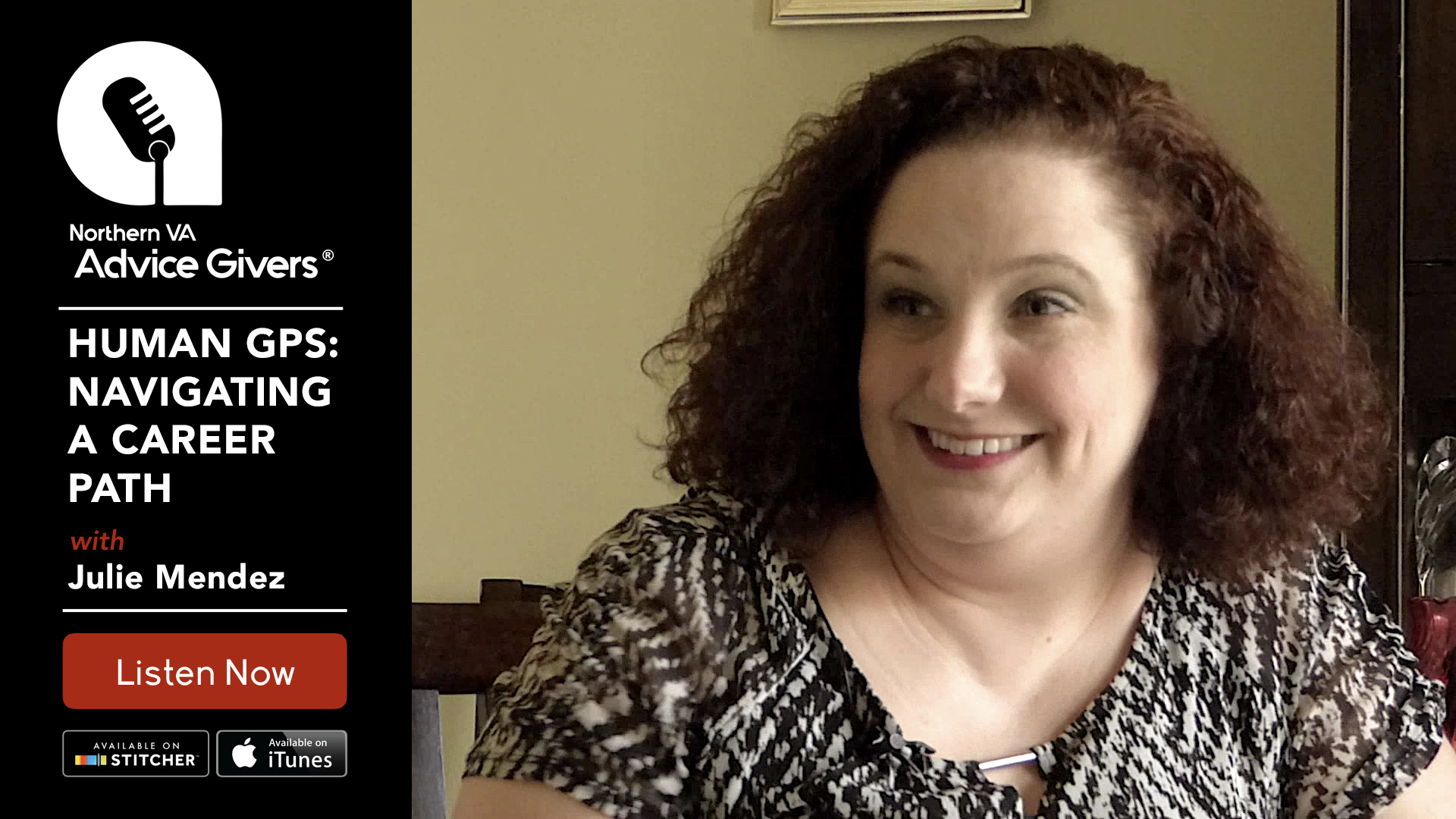Julie Mendez
Julie Mendez was a recruiter for some time, but her family moves often so she needed a job that she could pick up and take with her. “Because recruiting is so networking-based, when you move to a new town, you have to restart your brand new network,” she explains. She couldn’t keep restarting from scratch every time she moved, and since she was already helping her friends write their resumes and practice for interviews, why not make it a business? Having to restart her own career so many times gave her plenty of practice, too.
Career Coaching
Julie is passionate about getting people jobs. “They just need a job. Everything else is gravy,” she says. “They need to pay their bills. They need to keep the roof over their head. And they can do that better when they have a successful job search.” A great resume leads to better calls for better job leads, and networking is important. “If they’re really good at networking, they can network their ways into better jobs, which helps them pay their bills, build their career, [and] have those great successful career opportunities that they’re looking for.”
She starts at the beginning with job seekers, working on everything from what they wanted to be when they grew up as children, all the way through the resume, interview, salary negotiations, getting started, and being successful in a new job. “And then from there, we’ll do everything career-development,” she adds. “So for those people that are currently in a job but trying to work their way to the next level or work toward that next promotion, we’ll focus on those things as well.”
Common Advice
Julie has a few pieces of standard advice. “First of all, have a great resume that sells you well,” she says. Your resume has to market you and represent you well on paper.
“Also, you have to have a LinkedIn profile, and you have to have a good one,” she says. “And you have to actually use it.” Recruiters love hanging out on LinkedIn, so that’s how a recruiter is likely to find you.
You also have to network. Only 10% of job seekers who fill out online applications find their job that way. For 60-80% of job seekers, they got their job through networking and internal referrals. “You need to talk to people. You need to make new relationships and build new friendships,” Julie says. For people who are more on the introverted side, that’s frankly terrifying, but you have to do it. “Networking is such a scary word, and it really shouldn’t be. Just going up to somebody and talking to them and making a new friend, that’s networking.”
Marketing Yourself in a Resume
Unfortunately, resumes don’t typically go to a person, especially in larger companies. “Nowadays, it’s going into a database,” Julie explains. The databases, called applicant tracking systems, hold a bunch of resumes. Eventually someone will come along and search some keywords, just like on Google, that pulls up a list of resumes best-matched to the search. Then the person will start at the top of that list and work their way down. “If you haven’t set up a resume to beat the computer system [and] match it with the right keywords so you’re coming up in the right searches for the right kinds of jobs, you could be perfect for that job but they’ll never see your resume,” says Julie. It’s very important to to make sure your resume sells you specifically for the kinds of jobs you want, not just any old job.
Also unfortunately, the right keywords can depend entirely on who is running the search. “It’s so individualistic. It completely depends on that person who’s running that search with those keywords that day,” Julie says. “Someone else might come behind them and run a completely different search and come up with a completely different list.” So make sure your resume sells you and markets you, but also look for another way in. In particular, network your way in.
Time Management
The advice that makes the biggest impact on Julie’s job-seekers is to take a careful look at their time management. Online job applications are so complicated that they can take a few hours just to fill out, but only 10% of people find jobs that way. “We’ll talk a bit about how you spend your time effectively and productively, so you’re getting to the right job faster or you’re getting the most bang for your buck out of those hours,” says Julie. Restructuring your time can make a big difference.
Contact Julie Mendez
If you need a career coach or would like to watch Julie’s LinkedIn video series, find her at her website and LinkedIn profile.




